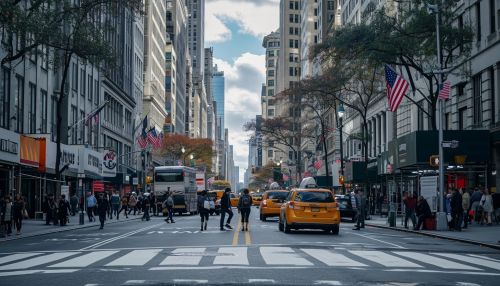Recession
Overview
A recession is a significant decline in economic activity that lasts for several months or more. It is typically identified by a fall in GDP, income, employment, manufacturing, and retail sales. Recessions are generally considered a part of the business cycle, and they can have significant impacts on the economy and society as a whole.
Causes of Recession
Recessions can be caused by a variety of factors, including economic shocks, financial crises, and policy decisions.
Economic Shocks
Economic shocks, such as a sudden increase in oil prices or a large-scale natural disaster, can lead to a recession. These events can disrupt the economy, leading to decreased production and increased unemployment.
Financial Crises
Financial crises, such as the 2008 financial crisis, can also lead to recessions. These crises can lead to a decrease in consumer and business confidence, leading to decreased spending and investment.
Policy Decisions
Policy decisions, such as changes in monetary or fiscal policy, can also lead to recessions. For example, if a government decides to cut spending or increase taxes, this can lead to a decrease in aggregate demand, which can lead to a recession.
Effects of Recession
Recessions can have a variety of effects on the economy and society. These effects can include increased unemployment, decreased consumer and business confidence, and decreased economic growth.
Unemployment
During a recession, businesses often cut back on their workforce to reduce costs. This leads to an increase in unemployment. The increase in unemployment can lead to a decrease in consumer spending, which can further exacerbate the recession.
Decreased Confidence
Recessions can also lead to a decrease in consumer and business confidence. This can lead to decreased spending and investment, which can further exacerbate the recession.
Decreased Economic Growth
During a recession, the economy's output of goods and services decreases. This leads to a decrease in economic growth. The decrease in economic growth can have long-term effects on the economy, including decreased living standards and increased government debt.
Recovery from Recession
Recovery from a recession can be a slow and difficult process. It often requires policy interventions, such as monetary and fiscal stimulus, to boost demand and stimulate economic growth.
Monetary Policy
Monetary policy, such as lowering interest rates or increasing the money supply, can be used to stimulate demand and boost economic growth. This can help to end a recession and start a recovery.
Fiscal Policy
Fiscal policy, such as increased government spending or tax cuts, can also be used to stimulate demand and boost economic growth. This can also help to end a recession and start a recovery.
See Also


